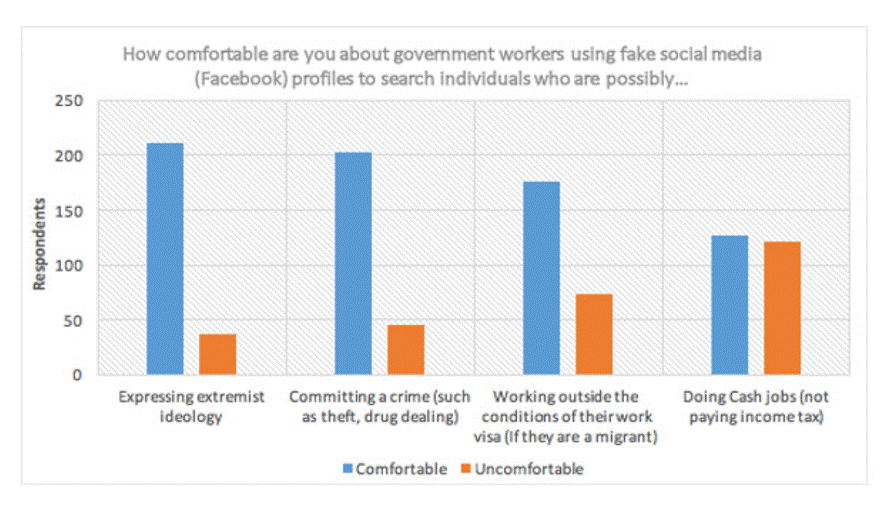Authors: Cleaver, O. & Nicklin, G.
Published in National Security Journal, 12 June 2020
Of note, many respondents considered the use of false social media personas should be a Police-only capability, consistent with the scenario-based results in the survey that showed a greater social licence for police searches than for other types of search.
Figure 1: Scenario-based question on types of government purpose
A recurring comment of “I have nothing to hide”, suggests that respondents consider their social media profile to be open to searches, and thus public. The OPC considers data found on social media networking sites to be open source and publicly available.33 This could possibly be contested by social networking companies, which assert in their terms and conditions that they own the right to access and use social media data, indicating it is private.34
Understanding the dynamics of whether social media is private or public could have a significant effect on the legislative and policy concerns surrounding social media data collection, and warrants considerable further research.
Trust, confidence and transparency are further key themes identified in the survey. These issues are interdependent because transparent policy tends to generate public trust and confidence. This trust and confidence may reinforce a positive perception of the utilisation of covert social media persona for regulatory and law enforcement purposes. Even so, or even because of this positive perception, there is a need for policy and safeguards that consider privacy, best practice and where the “fine-line” of use sits.
